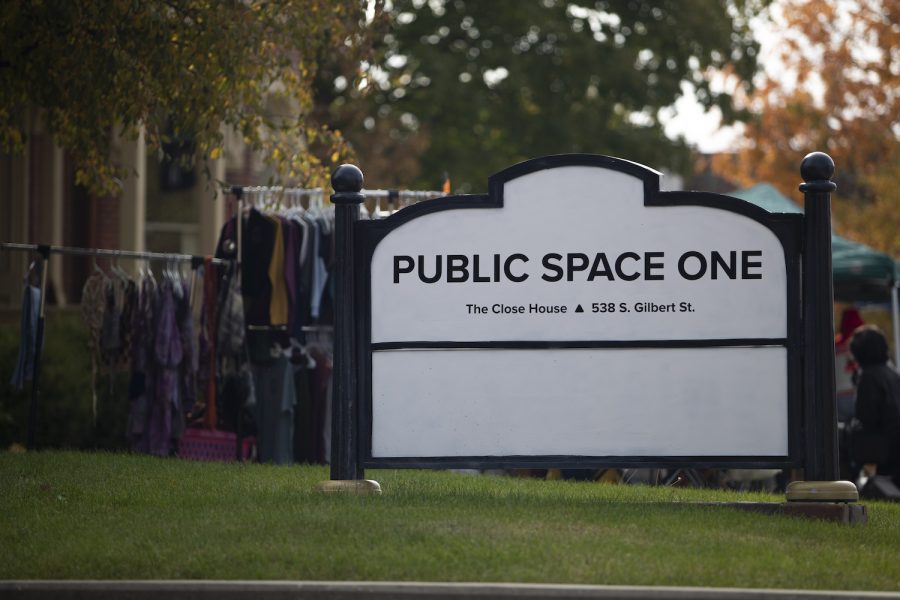A world turned upside down. Workers on a path of stability, comfort, and safety now must face what every American fears, the unknown.
“We forget how dependent our personal meaning is on what we make and what we do,” said Sean Christopher Lewis, the artistic director of Rust and a founding member of Working Group Theater.
As students face the unknown of graduation, internships, job placement, or graduate programs, there comes a tipping point when they must either jump into the unknown with hopes of a fulfilling career or stick to a path of foreseen outcomes.
“The abyss of the unknown never goes away, and people often feel trapped,” Lewis said.
Factory workers from a General Motors stamping plant had to deal with a similar set of decisions.
Facing unemployment or transferring, many individuals were trapped and had to make a difficult choice: leave everything they knew in a company that had stood as a beacon of hope in hard financial times throughout generations or make the jump into the unknown and fulfill a new career path.
Rust, a performance about this fall of industrialization, will open 7:30 p.m. Friday at Riverside Theater, 213 N. Gilbert St.
In 2008, General Motors announced the end of the automobile manufacturing plant in Wyoming, Mich., after 75 years of employing generations of community members. More than 1,500 people lost their jobs. Rust is founded on the interviews writers Austin Bunn and Lewis conducted.
“Every play changes me a little bit. It has humbled me about approaching a large subject and how hard it is to try to capture it,” actor and cofounder of Working Group Theater Martin Andrews said. “Finding a character’s journey is a true challenge.”
Lewis and Andrews, along with the six other actors in the play, agree the performance will hit home for many people.
“To a certain extent, these are the jobs their own grandfathers, grandmothers, fathers, mothers maybe did and serves as a picture for something that maybe doesn’t exist for them anymore,” Andrews said.
A pile of thrown chairs, trash, ladders, plastic tarps strewn about, scaffolding as a new home to dusty spider webs, and what was once a flourishing assembly line left abandoned, sets the scene for the play. A community centered on the automobile factory faces hardships when the announcement comes for the plant to be shut down.
“Industrialization itself is rusting,” said Lewis.
Bunn, a writer who conducted many of the interviews of workers, managers, executives, consultants, and a variety of others in the Wyoming, Mich., area, expected to find a community of distraught workers. However, what he and the group found was a strong community.
Actor Matthew James said that many times, people who are facing struggle are portrayed primarily as numbers.
“This play humanizes those numbers in a non-politicized manner,” he said. “Rust gives a voice to the people actually affected by the GM bankruptcy and bailout while making us reflect on what ‘work’ and the American Dream actually mean in contemporary society.”
“It is human nature — either you give up or fight on,” Lewis said. “It is easier to give up, but most people don’t want to give up.”
James described the play in one sentence.
“Rust is a breakdown, but it is also a transformation,” he said.
Andrews, said the play attempts to demonstrate that work was once something people did to pay the bills and support a family. The idea of personal expression was seen more through family and community involvement.
“Work was a way of survival, not a determinant of individuality,” he said.
Working Group Theater was founded in Iowa City in 2009. Many of the plays are written through interviews and performed as combined monologues.
“We want to be able to create work that matters where we live and on a national scale,” Lewis said.
A unique aspect about Working Group performances, Lewis said, is the spectacle of the performance.
“We have to ensure every show we do is great,” he said. “It has evolved with each production — how we are staging it here is completely different and new. I don’t want to do same show — it needs to be more exciting and inventive each time.”
Rust






